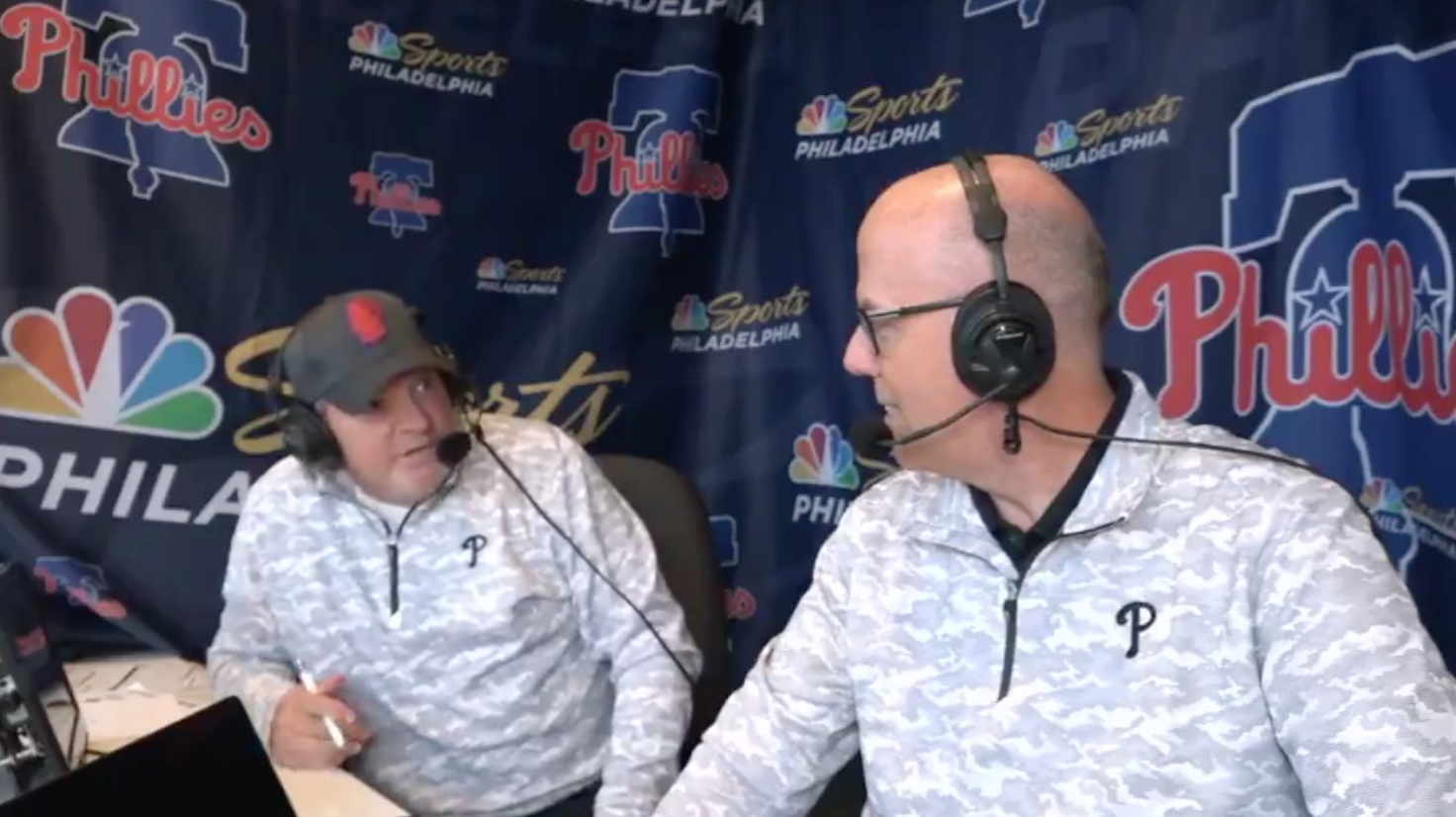It’s been nearly 20 years since the NFL pushed ESPN to cancel Playmakers, the dramatic series that explored the dark side of football. Despite the show’s critical acclaim and relative ratings success, the WorldWide Leader decided it was best to stop antagonizing its most valuable broadcast partner.
Two decades later, it’s hard to fathom a program like Playmakers even reaching the air. The NFL is no longer just the most popular sports league in the country: it’s a cultural institution that’s almost single-handedly keeping networks afloat. Last year, NFL games accounted for 82 of the 100 most-watched shows on TV, and the number should be even greater this year.
Amazingly, the NFL is pulling in more viewers than ever, averaging 17.48 million eyeballs per game this season across TV and digital platforms (excluding international affairs). That’s almost an 8% year-over-year increase, while there’s an overall 8% decline in U.S. TV usage this fall.
Those gargantuan numbers make the league’s $100 billion media rights deal look like a bargain. The NFL could probably rip up its existing contracts and demand even more money, and networks would be forced to oblige.
The league’s omnipresence was on full display Christmas Day. The NFL clobbered the NBA, which used to own the holiday. Raiders-Chiefs drew 29 million viewers alone.
Meanwhile, the five NBA games on Christmas combined for 14 million viewers … total.
With those numbers in mind, it’s not surprising to see the Ravens and 49ers attracted more than 27 million viewers in primetime, making it the second-most watched Monday Night Football game since 1996.
But in terms of the league’s dominance, those figures only tell half the story. The reaction to Lamar Jackson, who bolstered his MVP campaign with another exceptional performance, tells the other.
When the Ravens placed the non-exclusive franchise tag on Jackson last offseason, teams rushed to declare they weren’t interested in the MVP’s services. An array of QB-needy teams, ranging from the Falcons to Colts, publicly passed on the chance to bring him in.
And they used NFL Insiders as their mouthpieces. When asked about the stunning disinterest in Jackson, Insiders blamed the cost it would require to acquire him.
“It would take someone unbelievably committed to Lamar Jackson and I’ve looked, and I have not found that team just yet,” said Ian Rapoport in early March.
This narrative was accepted at face value, without any of the league’s most prominent reporters pushing back. Adam Schefter and his cohorts didn’t mention ownership backlash against the Browns for Deshaun Watson’s record-setting contract, and how that might’ve impacted Jackson.
Nine months later, the lack of interest in Jackson looks more curious than ever. He’s arguably the most dynamic QB in the league, and is leading a Super Bowl favorite.
Yet, Schefter and others are still clinging to their unfathomable tale. Nothing can contradict the league’s preferred narrative, including common sense.
Rich Eisen, the longtime face of NFL Network, fired the first salvo Monday night. He says teams knew the Ravens were never going to part with Jackson; and thus, didn’t want to waste their time.
Seeing a lot of teams “passed” on Lamar this past spring takes here.
1) He was NEVER a free agent. You would have had to give @ravens two No. 1 picks to sign him if the Ravens would not match the offer.
2) The Ravens were never going to let him go.
That is all.
— Rich Eisen (@richeisen) December 26, 2023
Schefter followed up, alleging nobody even approached the Ravens with an offer.
That is not all. Ravens never were approached. Carolina traded multiple 1s for Bryce Young, yet no team ever tried to get a deal done with Lamar Jackson. There never was a team that challenged it once Jackson himself publicly stated he wanted out of Baltimore. Lost opportunity.
— Adam Schefter (@AdamSchefter) December 26, 2023
As Mike Florio recently outlined, teams surrender multiple high draft picks for elite quarterbacks all the time. The Panthers traded two firsts, two seconds and D.J. Moore for Bryce Young, who hadn’t even played a snap.
If Schefter is correct about Jackson, almost every GM in the league should be fired. Great quarterbacks always cost a lot of capital. That’s the price of doing business.
Just like pushing NFL-approved storylines.
Look no further than Aaron Rodgers, the dumbest self-created sports story of 2023. Just days after tearing his Achilles in the Jets’s season-opener, Rodgers hinted he could come back this season. The 4-time MVP told Pat McAfee he had a “pretty damn good rehab plan” and the timetable for his return might “shock some people.”
Of course, McAfee, who pays Rodgers to appear on his show, didn’t offer any skepticism. He shilled out for Rodgers, just like when he pushed the ex-Packer star’s “vaccine debate.”
ESPN proceeded to siphon Rodgers’ ludicrous comeback teases for content, even though they were ridiculous. Players don’t come back less than four months after tearing their Achilles.
But the NFL’s broadcast partners proceeded to play the role of useful idiots. During a broadcast of Sunday Night Football, Melissa Stark reported Rodgers was targeting a mid-December return.
Interestingly, Rodgers pushed back on Starks’ report, just like he acted offended when pundits theorized that maybe he didn’t tear his Achilles after all.
Finally last Tuesday, Rodgers acknowledged the obvious: he couldn’t possibly return this season.
Rodgers only played four snaps this year; and yet, managed to remain one of the league’s main characters. Then in the end, he got the last laugh.
Aaron Rodgers finally puts to rest the notion of him attempting a comeback this season with Pat McAfee.
"I'm still 14 weeks tomorrow from my surgery and being medically cleared as 100% healed is just not realistic." pic.twitter.com/BNjt83KF3I
— Awful Announcing (@awfulannouncing) December 19, 2023
The NFL’s tentacles touch everybody, from Jeff Bezos to Bob Iger. Bryan Curtis recently made the case that NFL Network is the football media’s assignment editor, and it’s hard to argue.
It wasn’t that long ago when broadcasting every round of the NFL Draft was considered possibly overkill. Now, ESPN hosts primetime specials about free agency and the schedule release.
That’s right: the schedule release.
Jim Trotter found out this year what happens when football reporters go against the shield. He publicly asked Roger Goodell about the league’s lack of diversity at the Super Bowl, and found himself out of a job at NFL Media months later.
Trotter filed a lawsuit, alleging the NFL severed ties him due to his line of questioning (the NFL claims it didn’t renew Trotter’s contract due to budgetary issues).
It’s easy to draw the cause and effect here. Florio said the NFL views Trotter as a “troublemaker,” and no longer wanted him around.
Don’t expect Trotter, who now writes for The Athletic, to appear on an NFL broadcast partner any time soon, despite his years of on-air experience.
With cable and broadcast TV in perpetual free fall, the NFL represents a multibillion-dollar life raft for networks. It’s a rare sight to see anyone challenge the league, especially a rights holder. Aside from investigative reporting from the likes of ESPN’s Don Van Natta into Dan Snyder and the Commanders drama, it’s few and far between. When it comes to survival, the networks and the sports media need the NFL much more than the NFL needs them.







